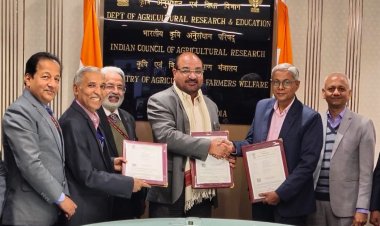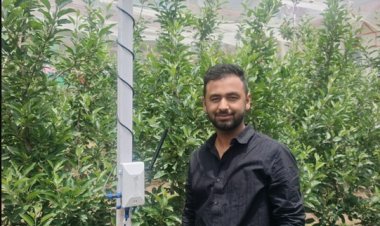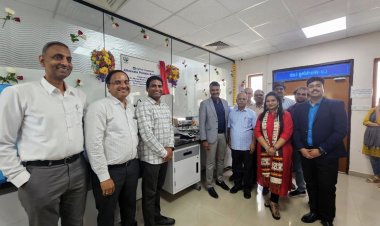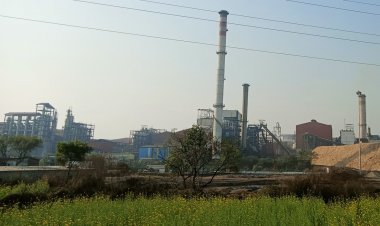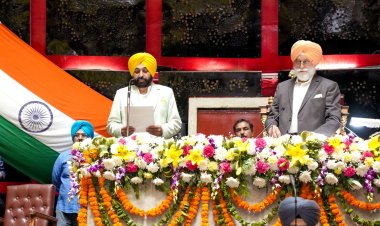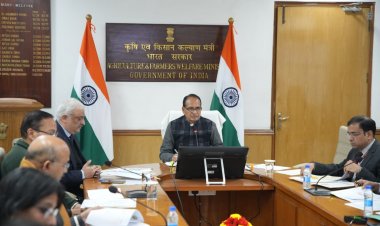Solar Power and Smart Control Tech Driving Sustainability in Agriculture
Innovative irrigation systems combining solar energy and smart controls are helping farmers cut emissions, save costs, and boost resilience.
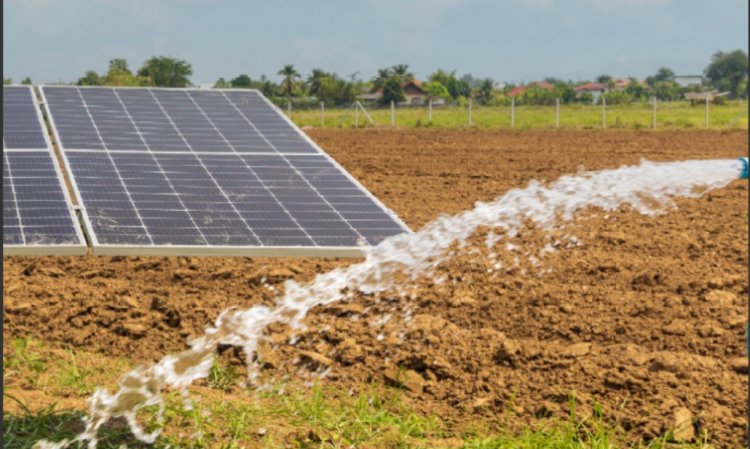
In a world grappling with climate change, food insecurity, and energy transitions, an unexpected technology is emerging in the fields: solar-powered irrigation. A quiet revolution is sweeping through agriculture, as solar-powered irrigation systems (SPISs) increasingly replace diesel-driven pumps and grid-powered water management. At the heart of this transformation is a fusion of renewable energy and smart control technologies that promise to redefine how food is grown - sustainably and profitably.
While irrigation may seem like an essential agricultural task, its implications are far-reaching. Without it, global cereal production would plummet by an estimated 47%, threatening food security for millions. Yet, traditional irrigation methods have long been energy-intensive and environmentally damaging.
The global agricultural sector currently devotes over 320 million hectares to irrigated land, accounting for more than 20% of arable terrain. Yet, it consumes a staggering 62 terawatt-hours (TWh) of energy annually just to operate irrigation pumps. As the industry seeks solutions to reduce greenhouse gas emissions and mitigate climate risks, SPISs have emerged as a beacon of hope.
Variable Speed Drives (VSDs)
Solar-powered irrigation systems work by converting sunlight into electricity through photovoltaic panels, which then power water pumps. This setup drastically reduces dependency on fossil fuels and can cut greenhouse gas emissions by up to 98% compared to diesel-based alternatives. The environmental benefits are matched by their practicality, particularly in rural or off-grid locations, where SPISs offer an affordable and efficient means to bring water to thirsty crops.
A major driver behind this success is the advancement of control technologies, particularly variable speed drives (VSDs). Once considered a mere tool to manage pump speeds and reduce wear, VSDs are now pivotal to energy savings and system efficiency. By dynamically adjusting pump speeds to match real-time irrigation demands, VSDs can slash energy consumption by 20–50%, dramatically lowering operating costs.
In an industry where approximately 85% of a pump’s life cycle cost comes from energy use, the integration of VSDs with SPISs is a game-changer. It allows for precise irrigation - delivering water when and where it's needed, and reducing the risk of overwatering, which can damage crops and waste resources.
From Data to Decision
Beyond just power control, modern SPISs are increasingly digital. The incorporation of sensors, PLCs (programmable logic controllers), and intelligent software systems enables farmers to make data-driven decisions about when and how to irrigate. By monitoring real-time weather patterns, soil moisture, and crop growth stages, these systems can fine-tune irrigation schedules, maximizing yield with minimal water use.
Control technologies also open the door to predictive maintenance. By continuously tracking the condition of equipment, they can alert users to potential problems before they lead to costly breakdowns. This predictive capability enhances reliability and extends the lifespan of critical infrastructure.
For example, a farmer can now monitor solar energy generation, pump performance, and water distribution from a smartphone or computer, receiving automatic alerts if something goes awry. Integration with Maximum Power Point Tracking (MPPT) software ensures that even when sunlight is inconsistent, energy usage remains optimal.
The Bikandi Vineyard: A Case in Point
The transformative potential of SPISs is already being realized across the globe. In the Basque Country of Spain, the family-run Txakoli Bikandi winery has embraced solar irrigation to overcome the challenges of being off-grid.
Nestled between Mount Anboto and Mount Oiz, the 30,000 sq. mt vineyard relies on Nidec Drives' Control Techniques Solar Pump Solution to water its vines. The system combines Commander C200 VSDs with embedded PLCs and MPPT software, creating an autonomous setup that delivers just the right amount of water at the right time.
As a result, the Bikandi family can now grow a variety of grape types - including Sauvignon, Chardonnay, and Riesling - with improved precision and less environmental impact. Their vineyard yields roughly 60,000 liters of wine annually, all thanks to an irrigation system that’s as sustainable as it is smart.
The Role of Nidec Drives
Nidec Drives, a global leader in motion control technology, is pioneering this shift toward smarter, greener irrigation. Their Solar Pump Solution is specifically designed to meet the unique demands of SPISs. From dry-run prevention and tank-level monitoring to automated cleaning cycles and sleep modes that conserve energy, these systems embody cutting-edge efficiency.
The company's VSDs can even switch between solar and AC power sources, ensuring uninterrupted operation day or night. With built-in PLCs and seamless integration into existing farm networks, Nidec’s solutions help future-proof agricultural operations while delivering measurable gains in sustainability and profitability.
As climate volatility increases and freshwater resources become scarcer, the pressure to adopt sustainable irrigation practices will only grow. Agriculture already accounts for around 60% of the world’s freshwater withdrawals, and optimizing how that water is used is critical to meeting both environmental and agricultural goals.
The future of farming lies in technologies that are not only efficient but also intelligent. Solar-powered irrigation systems equipped with advanced control technologies represent a leap forward - not just in how we water crops, but in how we think about sustainability in agriculture.
With global innovators like Nidec Drives leading the charge, farmers now have access to solutions that can help them grow more with less - less water, less energy, and less environmental impact. As the world faces the twin challenges of climate change and food insecurity, SPISs stand as a powerful tool for change, cultivating a greener and more secure future for us all.
(This article is based on Nidec Drives' white paper Irrigation in Agriculture, which discusses the use of variable speed drives in irrigation.)



 Join the RuralVoice whatsapp group
Join the RuralVoice whatsapp group


















